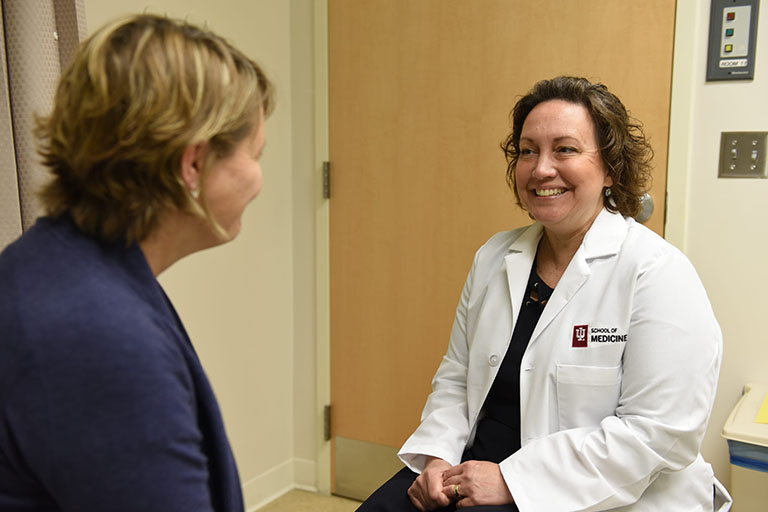Questions and answers about participating in a clinical trial
Kathy Miller, MD, designs clinical trials to improve the quality and length of patients’ lives.
She’s also one of the country’s leading breast clinical trial specialists, serving as co-chair of the National Cancer Institute’s Breast Cancer Steering Committee where she oversees trials across the country.






